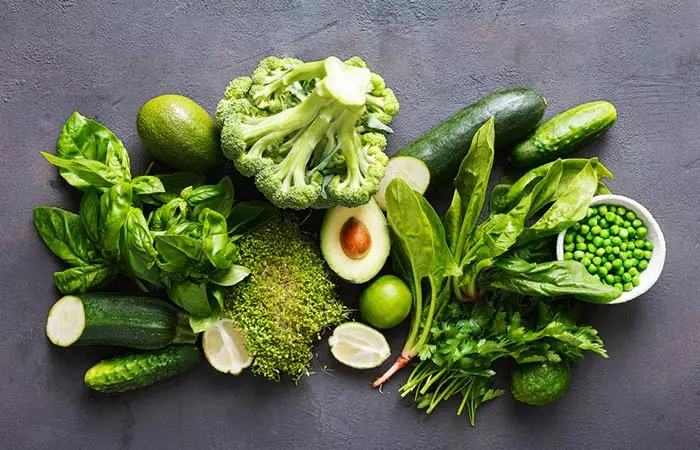To lose weight, it is essential to carry out a slimming plan that combines healthy foods and the practice of physical exercise. Vegetables are the basis of a healthy diet, as they are the foods that contribute the most diversity of nutrients, including a wide variety of vitamins from all groups, antioxidants, minerals, and soluble and insoluble fiber. They also provide very few calories, which makes them an ideal food for losing weight.
Specifically, green leafy vegetables have multiple properties and low-fat content for a large volume of food. In addition, their fiber and water content give them a satiating power.
The spinach, the great ally for losing weight
Among these types of vegetables are spinach, a food that can help speed up the weight loss process by just adding a daily ration to any meal. In this sense, a study published by the U.S. National Library of Medicine, which is collected by the Express Newspaper, revealed that dietary supplements based on spinach leaves reduced both body fat and weight.
Eating spinach every day as part of your diet gives you a 43% higher chance of losing weight
The people who participated in the study were divided into two groups: on the one hand, those who consumed every day, for a period of 3 months, the amount of 5 grams of spinach extract; on the other, those who took a placebo. The results showed that those who ate spinach daily lost 43 percent more weight than those who ingested a placebo.
The fiber, the key element
This is largely due to the amount of fiber they bring, both soluble and insoluble. The first contributes to reducing abdominal fat and losing weight, while the insoluble fiber helps the functioning of intestinal transit and the digestive system. In addition, it is a satiating food, a perfect quality for reduced calorie consumption and an absence of hunger sensation.
Properties and benefits of spinach
Its high vitamin and mineral content gives it a great nutritional value. The Spanish Nutrition Foundation (FEN) notes that it provides a large number of folates, vitamin C, and vitamin A and, in lower amounts, of vitamin E, B6, and riboflavin. They also provide a high content of beta-carotene (precursors of vitamin A), fiber, magnesium, iron, phosphorus, potassium, and calcium.
Nutritional value (per 100 g)
Calories: 31 kcal
Proteins: 2.6 g
Carbohydrates: 1.2 g
Fats: 0.3g
Fiber: 6.3 g
Calcium: 90 mg
Iron: 4 mg
Thus, there are many benefits of this leafy green vegetable to health. Here are some of the highlights:
– Antioxidant: Beta-carotenes, compounds that transform into vitamin A in the body, perform antioxidant actions and stimulate the immune system.
– Improves intestinal transit: The presence of fiber in spinach favors intestinal transit and prevents colon cancer and cardiovascular disease, according to FEN.
– Satiating effect: Its high content of fiber and water increases its satiating power.
– They maintain bone health: Calcium, magnesium and vitamin K stimulate bone repair, production and strengthening, allowing us to have a much healthier and more resistant skeleton.
– They help reduce the risk of anemia: It has good iron levels, although there are foods that are more effective for anemia. There are two types of iron, the “heme” and the non-heme. The first is the one found in animal products and is the one that is best absorbed. Spinach, on the other hand, contains non-heme iron, which is harder to absorb, but its vitamin C content helps improve the absorption of this iron in the body.
It’s not just about eating spinach.
The best way to eat spinach to help us lose weight is as a side dish in healthy dishes. It is also important to remove empty-calorie foods such as sugary drinks or refined carbohydrates, replacing them with whole-grain foods.
It’s important to note that people with a tendency to develop kidney stones, gout, rheumatism, arthritis, etc., should moderate their consumption, as their oxalic acid content can promote stone formation.

